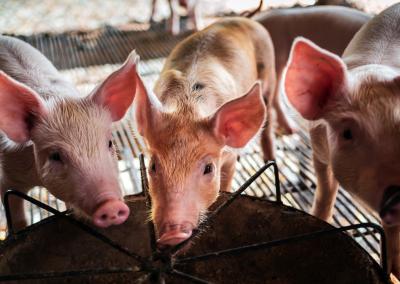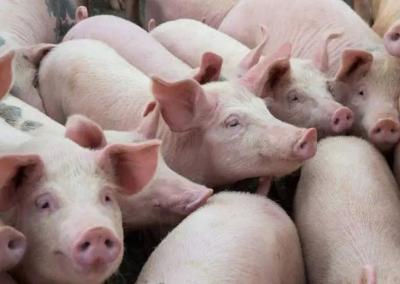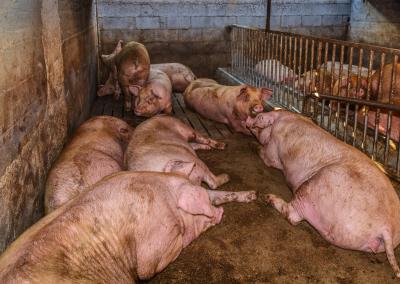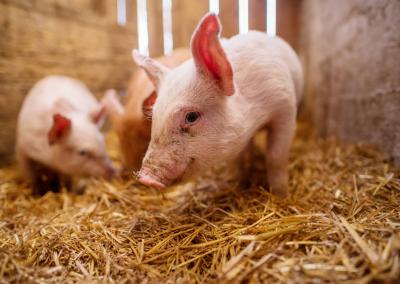The outbreak of ASF in Estonia sends a signal to the whole Baltic region
On 30 June, Estonia confirmed its first African swine fever (ASF) outbreak of the year on a commercial pig farm, just days after a similar case was reported in a Polish pig complex. The increase in ASF outbreaks is also a matter of great concern in Lithuania, especially in view of the increasingly warmer weather, which is encouraging the virus to become active in the wild.
On 29 June, in the Viljandi region, on a commercial pig farm with 2 776 pigs (fattening and piglets), clinical signs of ASF were observed in a commercial pig farm with 2 776 pigs (fattening and piglets), with a lack of appetite, apathy, bluish ears and abdominal area. On the same day, samples were taken for laboratory tests from dead and symptomatic pigs. On 30 June, the Estonian National Centre for Laboratory Testing and Risk Assessment confirmed the presence of the ASF virus in all samples.
The Estonian pig production complex affected by the ASF virus falls within Restriction Zone II as defined in the European Union Regulation (2023/594). Protection and surveillance zones have been established around the outbreak: there are no other pig holdings in the protection zone and only one in the surveillance zone. The necessary control measures are in place on the farm and in the surrounding areas: restrictions on the movement of animals and products, quarantine, disposal of dead animals and by-products, control of wild animals, zoning and tracing of the source of the ASF virus. Although Estonia does not have a large number of pig farms, this is further evidence of the seriousness of the disease.
Specialists from the State Food and Veterinary Office (SVVT) remind pig farmers to strictly comply with biosecurity requirements and to monitor animal health
„ASF is mostly spread from the wild, especially during the warm season. When the ASF virus is circulating in the environment, biosecurity is a key tool to prevent the disease. We have noticed that in forests, as the first mushrooms and berries have appeared, the movement of people has also increased, which is one of the ways in which irresponsible behaviour can lead to losses on the farm. We always wear our seat belts when we get in the car – inertia, and this is also true with biosecurity. A word of warning: when returning from the forest, change your shoes, change clothes, wash your hands and then go to the barn. It is also necessary to keep unauthorised persons away from the farm and to monitor the health status of the pigs at all times. These steps should be routine," warns Paul Busauskas, deputy director of the VMVT.














































































































